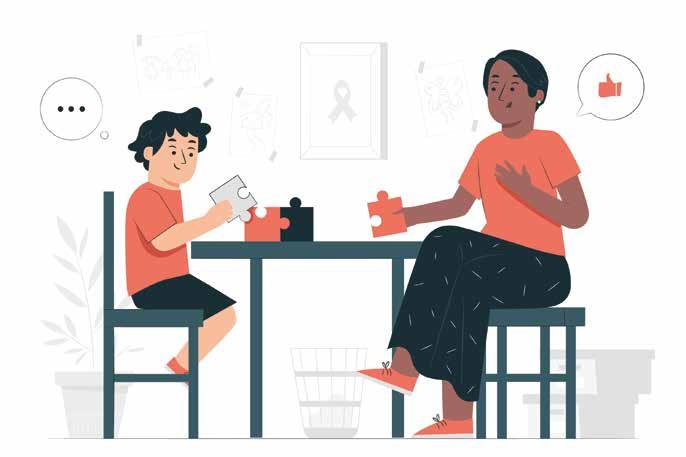
2 minute read
AUTISM
Having served as an educator and leader for an extensive period, I have increasingly observed the significance of the topic of Autism. Engaging in discussions about Autism can be sensitive and unsettling for certain individuals; therefore, it is crucial to possess knowledge and skills to address misconceptions. From my perspective, individuals with Autism Spectrum Disorder (ASD) are no different from any other person. It is essential to familiarise yourself with their unique qualities, understand their learning styles, and make the requisite adjustments to facilitate their development. As a teacher, the most gratifying experience arises from witnessing and actively contributing to their progress.
Throughout the years, it has become increasingly apparent that the proportion of children identified with Special Educational Needs or Disabilities (SEND) has witnessed a parallel growth. Undoubtedly, there has been a surge in diagnoses following the onset of the COVID-19 pandemic, and this upward trend persists to this day.
Advertisement
It is crucial for everyone to possess awareness and understanding of Autism, as our future generations will need to adapt in order to meet the needs of individuals within our society. By cultivating this awareness, we can foster an inclusive environment that embraces and supports individuals with Autism. This not only benefits those directly affected by Autism, but also promotes a more empathetic and accepting society as a whole. As we prepare for the future, equipping ourselves with knowledge about Autism empowers us to create a more inclusive and accommodating world for everyone.
What is Autism?
Autism or Autism Spectrum Disorder (ASD) is a neurological and developmental disorder that affects how people interact with others, communicate, learn, and behave. Those with Autism will see the world differently and will often represent different behaviours. It is a spectrum disorder which means some people will experience it more severely whilst others minorly. Some of the developmental areas which are impacted are: social awareness, thinking, fine and gross motor skills, repetitive behaviours, sensory/ information processing and non-verbal and verbal communication.
There are varying theories about what causes Autism.
Early signs of Autism
The signs of ASD can be present from as early on as 2-3 years old. As an Early Years Leader, I have been able to identify characteristics in children from a very young age, so here are some to look out for:
• Lack of eye contact with anyone
• Does not respond to name
• Repetitive behaviours
• Extreme outbursts/behaviours
• Solitary play
• Lack of spatial awareness
• Sensitivity to loud noises
• Misunderstanding everyday emotions
What can you do if you think your child has Autism?
• Visit the GP and express concerns
• Meet with your child’s class teacher and school SENCO
• Aim to be assessed by an ASD specialist
• Apply for an EHCP alongside supporting agencies
It is vital to recognise that each step in the process takes time, and therefore, patience is of utmost importance. Following a diagnosis, the school and relevant agencies will gain a better understanding of the child’s needs and work towards providing the necessary support. This may involve developing individualised education plans, implementing specialised interventions, and collaborating with various professionals to create an optimal learning environment. Remember progress is progress!
You can find some more activities on my fun educational ideas Instagram for younger children.
@the_magic_of_eyfs
(Early Years Foundation Stage)
By Anna Pericleous Teacher and Leader of Early Years and Primary Education








